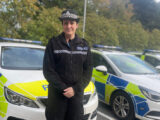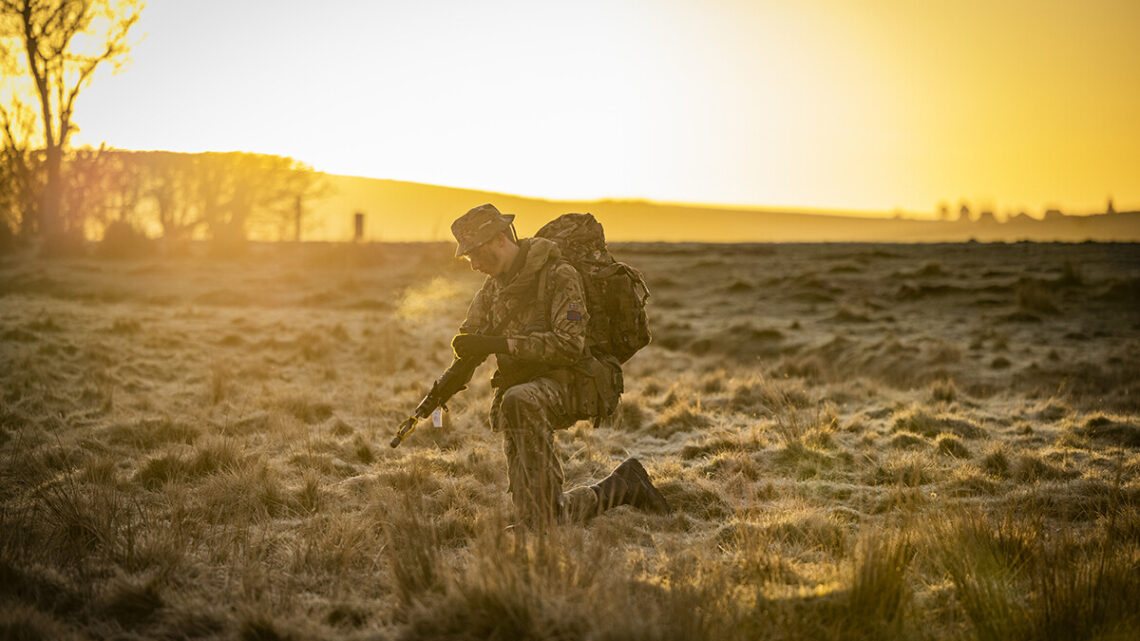
Army Cadets
The Covid-19 pandemic has caused disruption around the world, but for many people it has provided the chance to reflect, evaluate and embark on new challenges and adventures. Read on to find out how you can make a difference with the Army Cadets.
Over the last two years, increasing numbers of young people have replaced outdoor activity and adventure with computer games and technology. As we emerge from the pandemic, the Army Cadet Force (ACF) aims to change that by giving young people – from all walks of life – access to fun, friendship, action and adventure. With 39,000 Cadets and over 9,000 adults in more than 1,600 locations, the ACF is making a big impact on people and communities all around the UK.
Philip Kendrick was in the Royal Engineers for 18 years (five years at 33 Explosive Ordnance Disposal Regiment, five years as a Combat Engineer and eight years as an Armoured Engineer) and Served on Operations in Iraq, as well as on Exercises in Kenya, Cyprus, Belize, Canada and Germany. Before joining the Army, Philip was a Cadet with the ACF. When he was medically discharged from the Army, due to a severe neck injury, he decided to put his experience to good use: “I always said when I leave the Army I will go back as an adult volunteer to help if I can in any way to give something back”.
As well as working full-time as a deputy production supervisor and weighbridge administrator, Philip is a volunteer Sergeant Instructor with Bovington Detachment, Dorset ACF. He joined in 2015 and is enjoying every minute: “It’s important to have fun and we do. I get the chance to experience new challenges, new adventures and meet new people every time I go away or on a course. I have made some amazing friends who will be friends for life. I am a happy, outgoing person normally, but am at my peak when I do anything with the ACF” he says.
Philip’s ACF training and experience has also benefitted his career prospects – helping him to secure job interviews and giving him practical examples of coaching and mentoring skills to talk about with recruiters. He is now in the process of signing up for the City and Guilds Level 4 Award in Leadership and Management, through the ACF’s partnership with the educational charity CVQO, which is just one of the many subsidised vocational training courses on offer to volunteers.
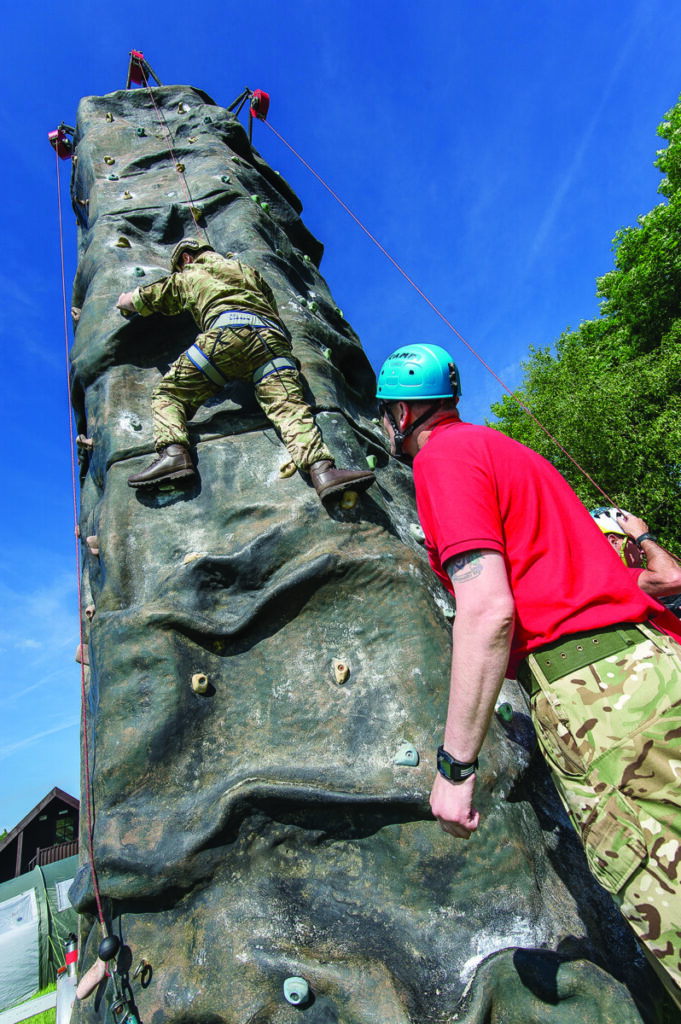
Army Cadet Volunteers
Adult volunteers play a vital role in the Army Cadet Force – acting as role models for the Cadets and teaching young people all sorts of skills from fieldcraft, skill at arms and adventurous training through to music and first aid. As well as the satisfaction of seeing young people achieve what they never thought possible, volunteers also have the opportunity to learn new skills, gain qualifications and make new friends. Army Cadet Force volunteers come from all sorts of backgrounds and those with Military experience excel in helping to deliver the broad range of adventurous and Military themed activities the cadets love.
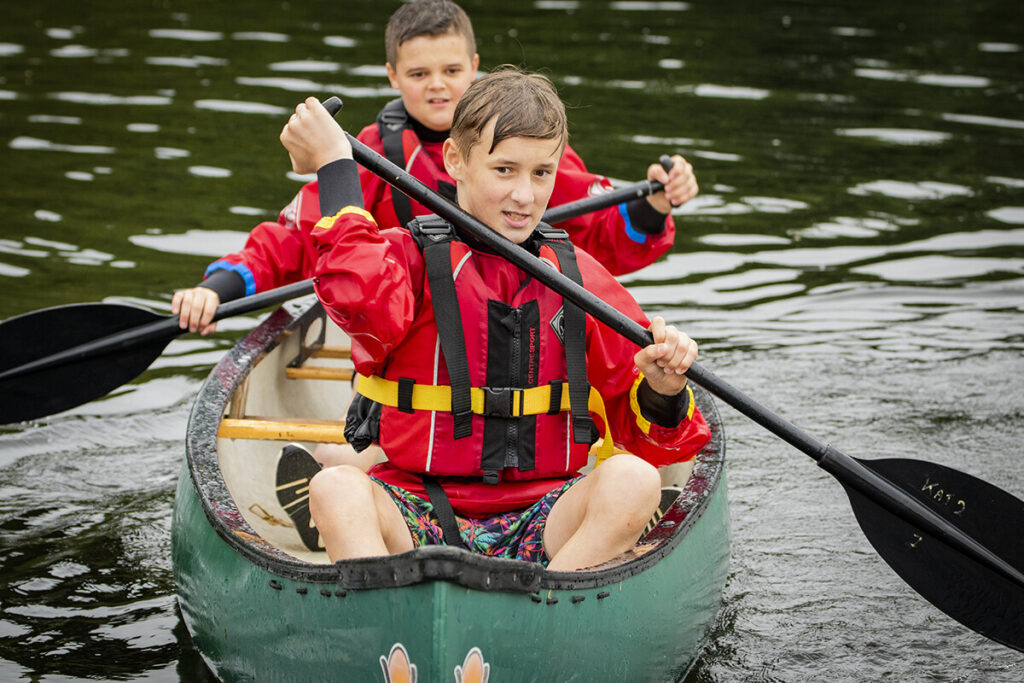
Helping young people to develop
The best and most unique part about being in the ACF, according to Philip, is seeing how the Cadets benefit: “As a volunteer it has given me immense pride watching the Cadets achieve and overcome some of their own problems. The Cadets always surprise me with their effort, commitment and spirit and the best thing is that I get to be part of it.
There is a real sense of family, friendship, equality and inclusion within the Army Cadets.” Philip would encourage others to join as volunteers: “You can’t teach experience and, with the right attitude and willingness to learn how the ACF works as a youth organisation, I’d encourage any former Soldiers to join up.”
Combining work, Army Cadets and the Army Reserve
As well as being a signalling systems trainer for London Underground, Kate Dunscombe also finds time to be an Army Reservist and a Company Sergeant Major with the ACF. Kate loved being an Army Cadet so much that she, and a number of her friends, went on to join the ACF as volunteer instructors. When another ex-Cadet who had joined the Army Reserve came along to help at an ACF camp, Kate was persuaded to become a Reservist as well. “Having been in the Army Reserve and the ACF for a while I can see that the two roles complement each other,” says Kate, who is now a Company Sergeant Major with Beds & Herts ACF. “The leadership and management are similar and the values and standards are the same. There are also skills and training that you can take from one role to the other, such as skill at arms and range qualifications and people management skills.”
Developing your skills
Kate has found that her ACF skills and training, particularly in supervising people and in having the confidence to command and lead groups of people, have been very helpful in her day job. “At London Underground I’m responsible for training their future signal engineers: the staff members and apprentices who will be responsible for everything from the control logistics, software and hardware to operating equipment on the signals and points. As an ACF instructor you gradually build up your confidence as a leader and trainer. You also develop the skills and patience to work with young people, something that’s been very useful in my work with apprentices.” Having risen through the volunteer ranks to become a Company Sergeant Major, Kate is responsible for helping to mentor younger adult instructors as well as organising activities for groups of Cadets. “Recently I took a group of Cadets on a battlefield tour to Ypres, she says. “The Cadets had the chance to take part in a ceremony of remembrance at the Menin Gate. They loved it and they learnt so much.”
Supporting the next generation
For Kate, inspiring her Cadets to become ACF leaders and to get on in life is one of the best rewards in being an ACF volunteer. “I’ve had quite a few Cadets who’ve gone on to become volunteers. Some are now Detachment Commanders and it’s great to see them embracing the ACF ethos, and encouraging their Cadets to take advantage of all the opportunities open to them.” One of the Detachment Commanders Kate mentored saw one of her Cadets beat off stiff competition from hundreds of others from across the Cadet forces to win the prestigious CVQO Westminster Award. “That kind of thing is hugely rewarding for adult volunteers as well as the Cadet,” says Kate. “The winner of that award received a trophy at the House of Lords and was able to take part in an expedition to South Africa, but there are hundreds of other opportunities open to Cadets in the ACF. As a leader you’re opening up all sorts of possibilities for the young people in your charge.”
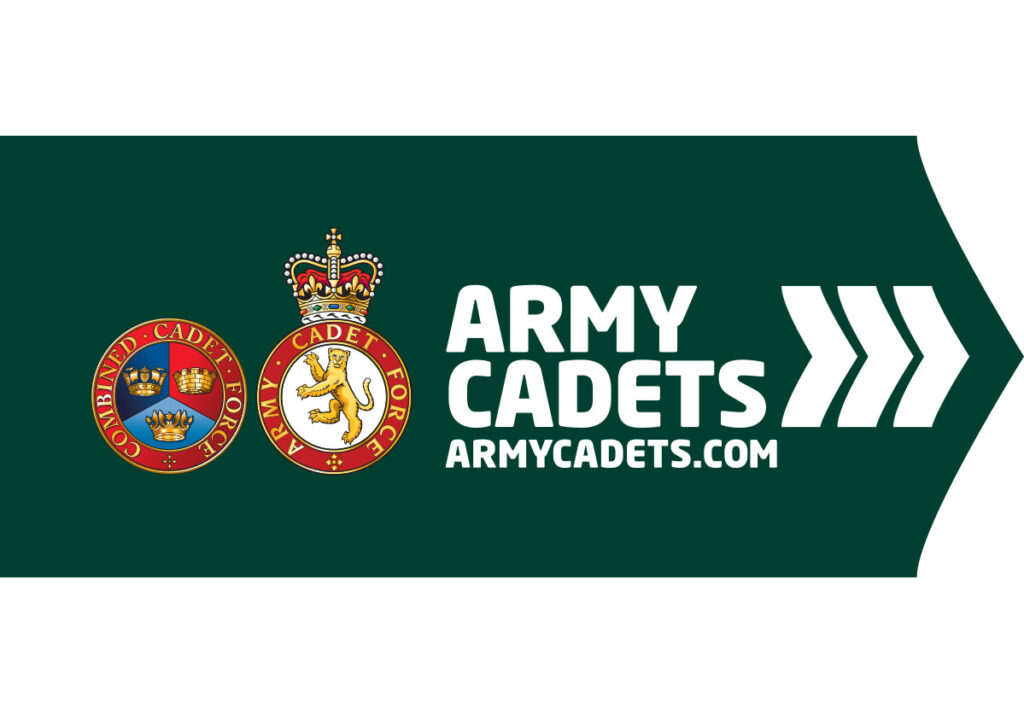
Visit: www.armycadets.com/military


